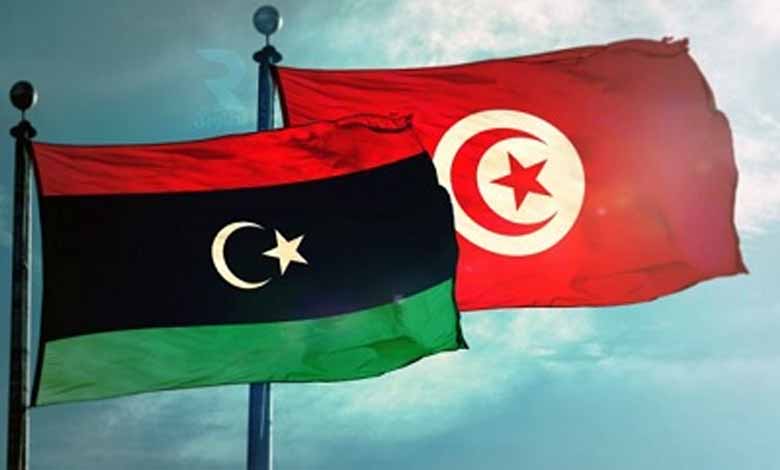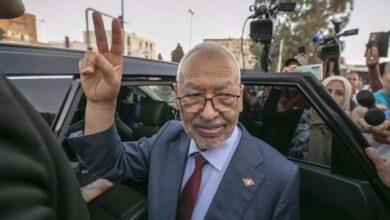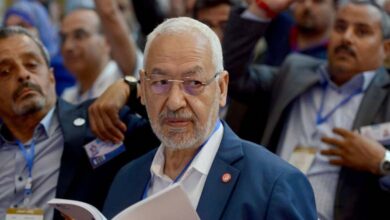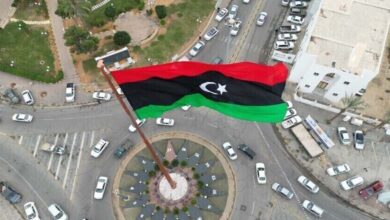Libya and Tunisia: Opening of borders crossings ends border crisis

With Libya and Tunisia agreeing to reopen their borders and resume air traffic next week, the two countries are setting an end point to their border crisis and war of accusations.
In a brief statement published Thursday evening on his official Facebook page, Libyan government spokesperson Mohammed Hammouda said that Prime Minister Abdel Hamid Dbeibah agreed during his meeting with Tunisian President Kais Saied to reopen the borders and resume air traffic next week (without specifying), in accordance with the unified health protocol between the Libyan and Tunisian sides.
Recent developments
Dbeibah discussed with the Tunisian president the latest political developments in the two countries and ways to develop and strengthen bilateral cooperation in the security and economic fields, the government’s media office said.
The Libyan government said that Dbeibah and Saied discussed opening border crossings between the two countries, noting that the two sides agreed to co-ordinate between the health and interior ministries to prepare a unified protocol for the return of land and air traffic as soon as possible, without specifying a time frame.
The Tunisian presidency said in a statement, that the meeting between Dbeibah and Saied was an opportunity to review the ties of brotherhood and cooperation between Tunisia and Libya in various fields, and to reaffirm the unity of fate and the correlation of development, stability and security in both countries, and the need to distance bilateral relations from all attempts at confusion for a better future for the two brotherly peoples according to a new vision.
The Tunisian presidency stressed that an agreement was reached to stimulate the concerned structures in the two countries to reach common solutions to some of the issues and difficulties related to health, the movement of people and goods at the crossings, debts incurred, the contribution of Tunisian institutions to the reconstruction efforts in Libya, as well as to intensify coordination and exchange of information to secure the borders, combat terrorism and organized crime and confront all attempts to target the unity and stability of the two countries and the region.
Violent shake
Dbeibah’s visit to Tunisia comes in an attempt to bring relations between the two countries back to normal after they were rocked by a violent earthquake in recent days amid mutual accusations between the two countries about exporting terrorism.
“Last July, the Libyan government announced a week-long closure of the border with Tunisia due to the rise in COVID-19 cases in the neighboring country, before extending it again, but when it decided to reopen it, the Tunisian side refused to open the border.”
The border crisis was accompanied by a letter from the Tunisian Interpol to the Arab and International Criminal Police, informing them of the intention of 100 terrorist elements to infiltrate from the Al Watiya Air Base in western Libya, where the Brotherhood organization is deployed, to Tunisia.
However, another telegram was sent by the Libyan Ministry of the Interior to the Arab Criminal Police, in which it was stated that the security services of western Libya had denied the authenticity of the information, as the Al Watiya airbase was under the control of the Libyan Ministry of Defense.
The Ministry of the Interior has stressed that in any event, the Al Watiya base cannot be used as a base for acts of terrorism or subversion that could destabilize the security and stability of our country or harm neighboring States.
Government delegation
After the cables were circulated, Libya pushed a large government delegation headed by Foreign Minister Najla Mangoush to clarify the Libyan position.
In a speech to the Libyan people, Libyan Prime Minister Abdel Hamid Dbeibah confirmed that he had sent a delegation to Tunisia to clarify the Libyan position, stressing that the government sought to build good relations with neighboring countries.
He said: “We will not accept accusations of terrorism.. You are the ones who brought the terrorists to us and held yourselves accountable before accusation. “We are a free people and we cannot accept being accused of terrorism”
He added: “Some neighboring countries have accused us of being terrorists, but the 10,000 terrorists who entered our country, where did they come from? You’re the one who brought them to us.. “Terrorism came to us from abroad, especially from some neighboring countries.”
However, these statements prompted the Libyan parliament to question the head of government about them at a session held last Wednesday. Abdel Hamid Dbeibah replied that he is seeking to reform relations between the two countries, revealing a visit to Tunisia to resolve this crisis.












